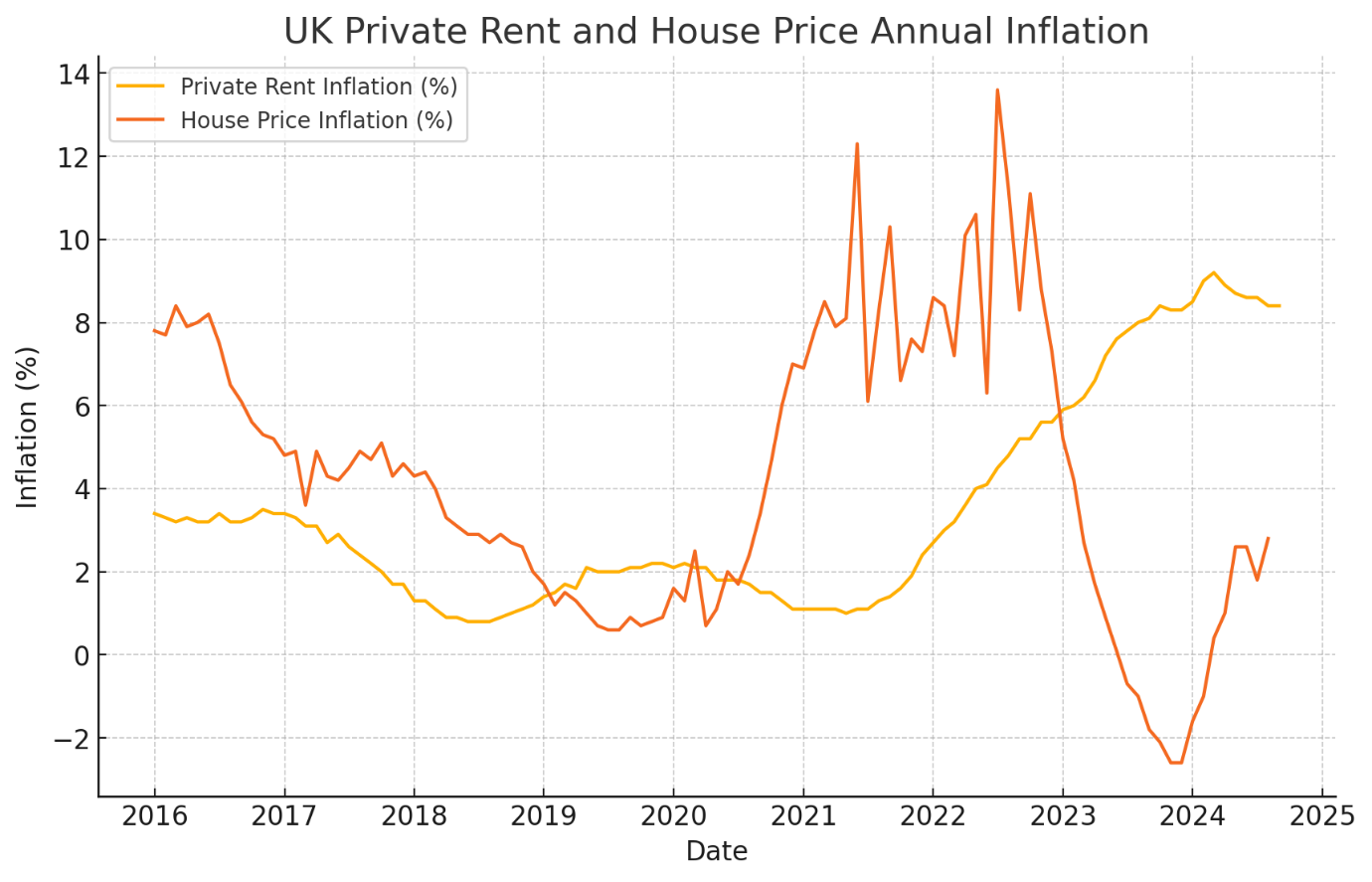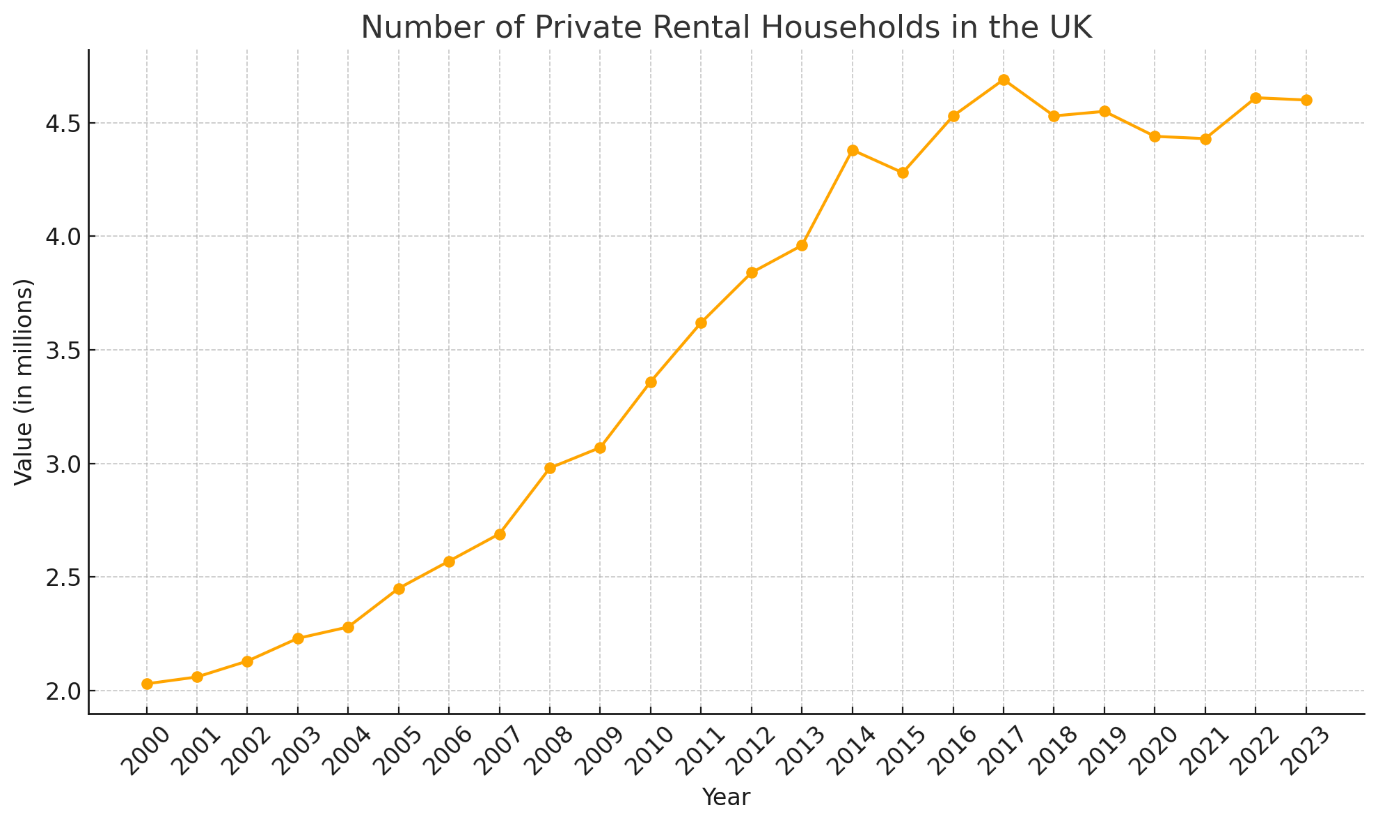New data shows that landlords may have bailed – and that rents are heading upwards as a result

We’ve covered the plight of the buy-to-let market and associated mortgages – and for some, it’s been like watching a slow motion car crash. We even warned that poor decisions made in the budget could make things worse – and that warning looks particularly prescient given the data in the latest Royal Institution of Chartered Surveyors (RICS) survey.
The new report shows that there has been a reduction in available rental properties, alongside growing demand – and that is set to drive up rent prices for tenants who are already facing record increases. In the three months leading to October, landlord instructions—a measure of landlords offering properties for rent—dropped to a net balance of -29%, the lowest since 2021. This figure fell from -17% in the previous quarter.
The RICS index, which tracks the balance between surveyors noting increases and decreases in available rental properties, revealed that this scarcity is putting pressure on tenants. “Renters are feeling the pressure from a limited supply of rental properties and rising rents,” said Tina Paillet, RICS president.

The latest data showed that tenant demand held strong at 19%, echoing high demand levels seen over the past three years. This disparity between supply and demand suggests that rental prices will likely continue to rise, with 33% of surveyors expecting an increase in rents over the next quarter.
Read more: UK rents hit a record high – Hamptons
The recent Labour budget introduced an increase in stamp duty for landlords, intended to redirect properties towards homebuyers, but Paillet says that could be just making matters worse. Separate data confirms that annual rent growth reached a peak of 9.2% in March, the fastest increase since records began in 2015, before easing to 8.4% in September. Rising demand in the rental market has stemmed partly from high mortgage rates, which deter many potential buyers. This increased demand has been met with fewer rental properties as landlords face growing costs and declining profitability. Rent on new leases took up 30% of renters’ gross income in September, the highest level recorded since 2017.
That planned stamp duty hike was carefully leaked by the government before the budget to drip out bad news, and as a result there was a rush of chain-free homes for sale – evidence of landlords getting out before the going got even worse.
Read more: Great news on house sales – but wait – is there a problem?
Meanwhile, a report by Yorkshire Building Society (YBS) highlighted additional factors that have driven some landlords out of the rental market. YBS found that while inflation and rising interest rates have challenged landlords, only 43% raised rents in the past year. This shows that rent increases are more often more like responses to rising costs than to profit-seeking. Landlords’ costs have outpaced rent hikes, with overall rental increases in 2023 at 6.2%, falling short of inflation.
In response to these trends, YBS has recommended that the government adopt a more balanced approach towards landlords, who play a crucial role in supplying rental housing. The YBS report proposes policies to reduce pressure on rents while maintaining rental property standards, such as reintroducing mortgage interest tax relief for landlords who uphold high property standards.

Figures from the Department for Levelling Up, Housing and Communities
A comprehensive study of the UK’s private rental market also offers insight into the makeup of landlords, primarily individual or small-scale property owners. According to the English Private Landlord Survey (EPLS) 2021, individual landlords - many of whom manage only one property - comprise the vast majority (94%) of rental property owners in England. The motivations behind becoming a landlord often involve a preference for property investments over other assets and using rental income as part of a long-term retirement plan.
However, these landlords are now contending with more stringent government regulations, including proposals to remove "no-fault" evictions and tighter energy efficiency standards for rental properties. Yorkshire Building Society suggests that a “decent homes charter”, which could include tax relief incentives for responsible landlords, may help address the rental market imbalance without significantly driving up costs for tenants.
Read more: Landlords back report urging action on rental supply crisis
In a regional view, recent government data shows that London remains the UK’s rental income hub, with London-based landlords contributing 24% of the country’s rental income despite making up just 17% of the landlord population. The data reflects the strong rental market in the capital and the contrasting dynamics in other regions.
As demand for rental properties continues to grow amid dwindling supply, these findings underline the need for policies that balance the interests of landlords and tenants to stabilise the rental market in the coming years.



